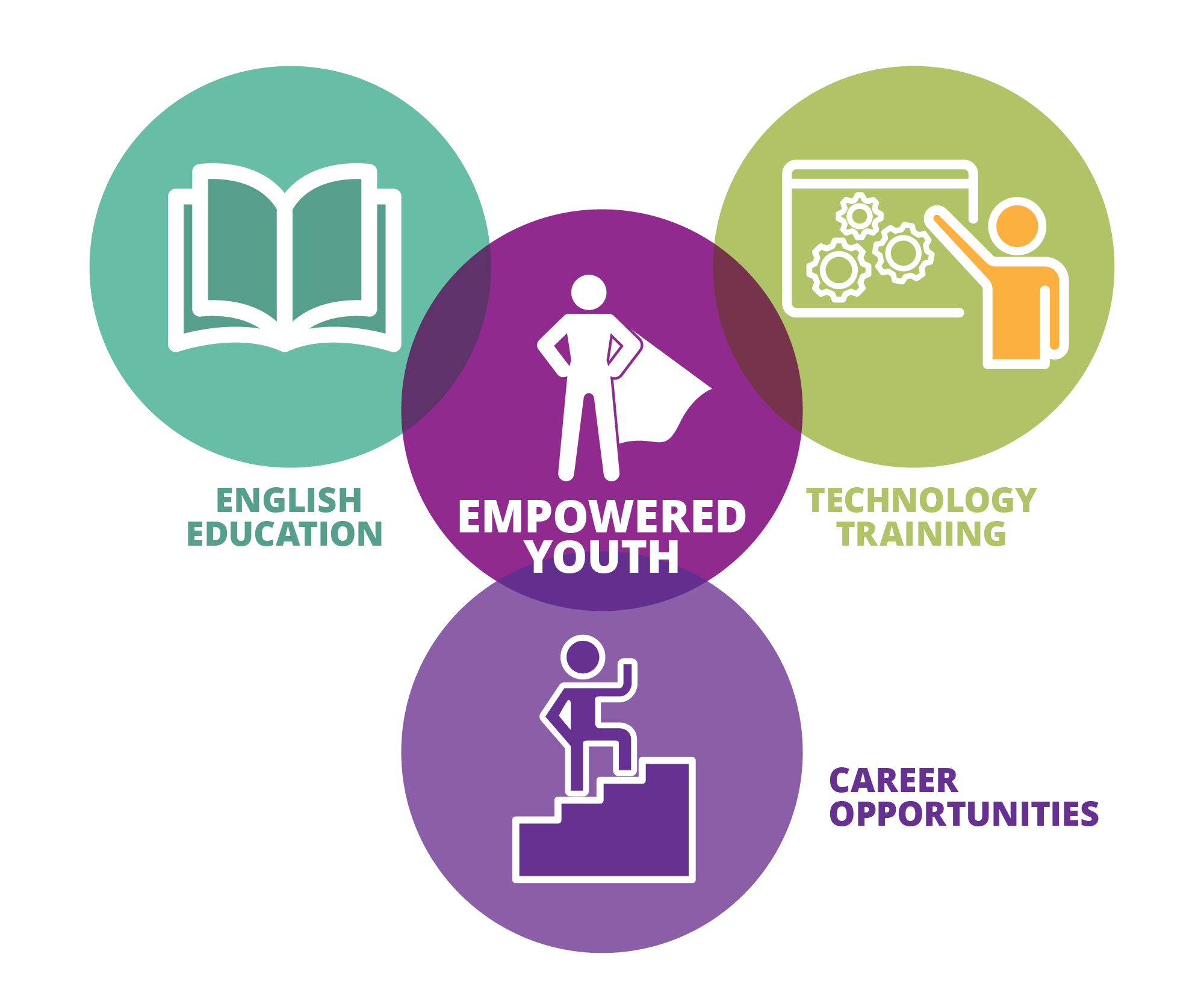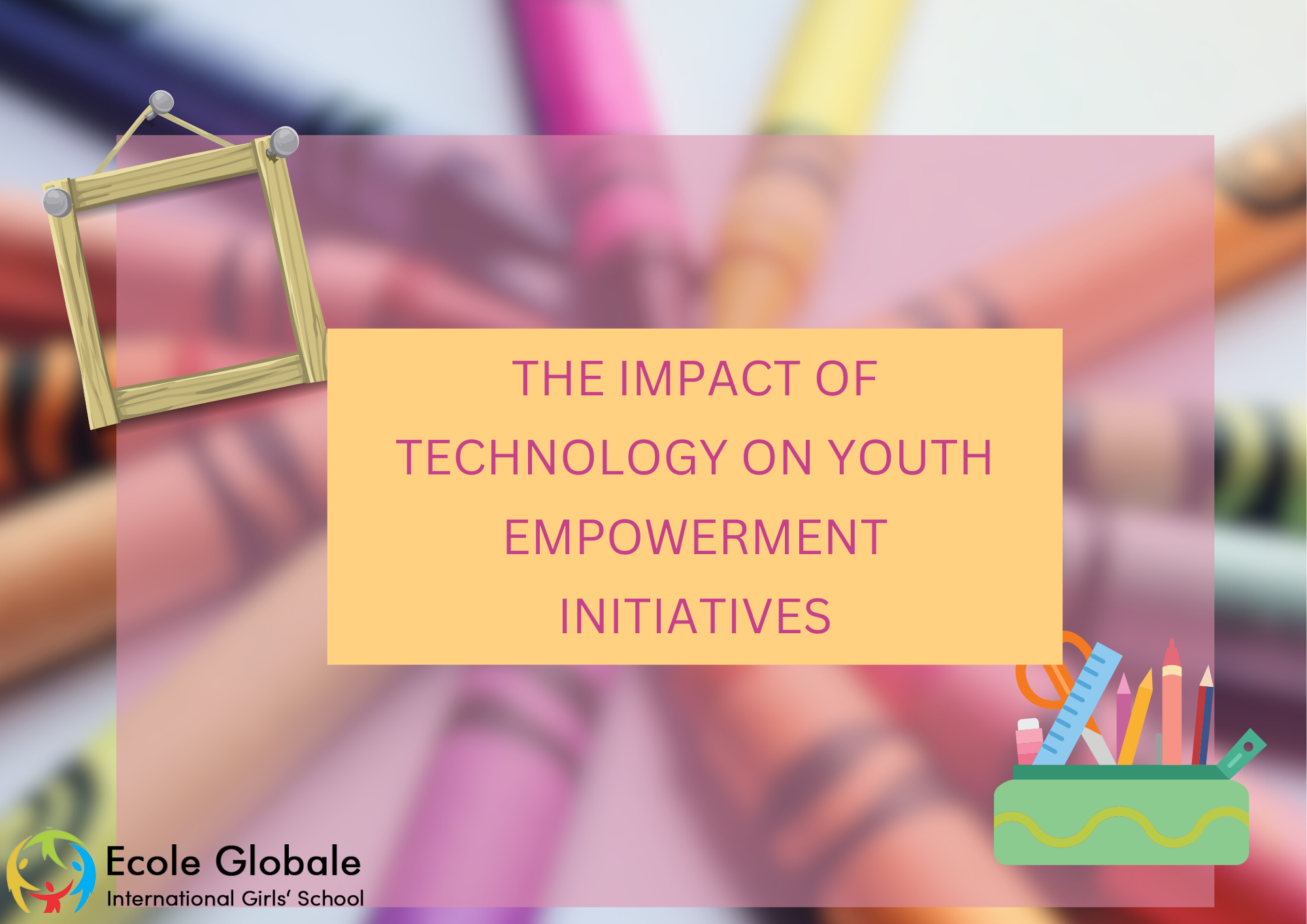“`html
technology and Youth Empowerment: Shaping the Future
Technology and Youth Empowerment: Shaping the Future
In an era defined by rapid technological advancement, the empowerment of youth has become a critical imperative. Technology, with its pervasive influence and transformative potential, offers unprecedented opportunities to equip young people with the skills, knowledge, and agency necessary to navigate the complexities of the 21st century. This article delves into the multifaceted relationship between technology and youth empowerment, exploring its various dimensions, challenges, and prospects.
The Digital Native Advantage

Young people today are often referred to as “digital natives,” individuals who have grown up immersed in a world of digital technologies. This innate familiarity provides them with a unique advantage in leveraging technology for personal and societal development. They possess a natural aptitude for navigating digital platforms, accessing information, and utilizing digital tools for communication and collaboration.
Access to Information and Education
The internet has democratized access to information, breaking down geographical barriers and providing young people with a wealth of educational resources. Online learning platforms, educational apps, and digital libraries offer flexible and accessible learning opportunities, enabling young people to acquire knowledge and skills beyond traditional classroom settings. This access is crucial for addressing educational disparities and promoting lifelong learning.
Skill Development and Digital Literacy

In the digital age, digital literacy is essential for success in education, employment, and civic engagement. Young people need to develop critical thinking skills to evaluate online information, coding skills to create and innovate, and communication skills to effectively collaborate in digital environments. Technology-driven initiatives, such as coding bootcamps, digital literacy workshops, and online courses, play a vital role in equipping young people with these essential skills.
Entrepreneurship and Innovation
Technology has lowered the barriers to entrepreneurship, enabling young people to turn their ideas into reality. Online platforms provide access to global markets, crowdfunding platforms facilitate access to capital, and digital tools streamline business operations. Young entrepreneurs are leveraging technology to create innovative solutions to social and environmental challenges, driving economic growth and creating new opportunities.
Technology as a Tool for Social Change

Beyond individual empowerment, technology plays a crucial role in enabling young people to become active agents of social change. Social media platforms provide a powerful platform for young people to raise awareness about social issues, mobilize support for causes, and advocate for policy changes. Digital activism, online campaigns, and social movements are increasingly driven by young people who are harnessing the power of technology to make their voices heard.
Civic Engagement and Participation
Technology can enhance civic engagement by providing young people with access to information about government policies, facilitating online discussions, and enabling them to participate in virtual town hall meetings. Online voting platforms and e-petitions can also increase youth participation in democratic processes. By leveraging technology, young people can become more informed and engaged citizens, contributing to the development of inclusive and participatory societies.
Addressing Social Issues
Young people are using technology to address a wide range of social issues, from climate change and poverty to gender inequality and human rights. Online campaigns are raising awareness about these issues, crowdfunding platforms are supporting social enterprises, and data analytics are being used to track progress and measure impact. Technology is empowering young people to become problem-solvers and changemakers, driving positive social change in their communities and beyond.
Building Communities and Networks
Online platforms facilitate the formation of communities and networks based on shared interests and values. Young people are using social media to connect with like-minded individuals, share ideas, and collaborate on projects. These online communities can provide a sense of belonging, support, and empowerment, particularly for young people who may feel marginalized or isolated. Technology is fostering a sense of global citizenship, enabling young people to connect with peers from different cultures and backgrounds.
Challenges and Considerations
While technology offers immense potential for youth empowerment, it also presents several challenges and considerations that need to be addressed. Digital divide, cybersecurity risks, and the potential for online harassment are among the key concerns that need to be mitigated to ensure that technology serves as a force for good.
The Digital Divide
The digital divide refers to the gap between those who have access to digital technologies and those who do not. This gap can exacerbate existing inequalities, limiting the opportunities for young people from marginalized communities. Addressing the digital divide requires investments in infrastructure, affordable internet access, and digital literacy programs. Bridging this gap is essential for ensuring that all young people have the opportunity to benefit from the transformative potential of technology.
Cybersecurity and Online Safety
As young people spend more time online, they become increasingly vulnerable to cybersecurity risks, such as hacking, phishing, and identity theft. Online harassment, cyberbullying, and exposure to inappropriate content are also significant concerns. Education and awareness campaigns are crucial for equipping young people with the knowledge and skills to protect themselves online. Governments, schools, and technology companies need to collaborate to create a safer online environment for young people.
Mental Health and Well-being
The excessive use of social media and digital devices can have negative impacts on mental health and well-being. Cyberbullying, social comparison, and the pressure to maintain a perfect online image can lead to anxiety, depression, and low self-esteem. It is essential to promote responsible and balanced use of technology, encouraging young people to prioritize their mental health and well-being. Parents, educators, and mental health professionals need to work together to support young people in navigating the challenges of the digital age.
The Future of Technology and Youth Empowerment
The future of technology and youth empowerment is bright, with emerging technologies such as artificial intelligence, virtual reality, and blockchain offering new opportunities for innovation and social impact. By fostering digital literacy, promoting responsible technology use, and addressing the challenges of the digital age, we can empower young people to become the leaders, innovators, and changemakers of tomorrow.
Artificial Intelligence and Education
Artificial intelligence (AI) has the potential to revolutionize education by providing personalized learning experiences, automating administrative tasks, and providing real-time feedback. AI-powered educational platforms can adapt to individual learning styles, identify knowledge gaps, and provide targeted support. AI can also be used to develop intelligent tutoring systems and virtual learning environments, making education more engaging and effective.
Virtual Reality and Immersive Learning
Virtual reality (VR) offers immersive learning experiences that can enhance engagement and knowledge retention. VR can be used to create virtual field trips, simulations, and interactive learning environments, enabling young people to explore new worlds and experience learning in a more engaging and memorable way. VR can also be used to develop empathy and understanding by allowing young people to experience different perspectives and cultures.
Blockchain and Social Impact
Blockchain technology has the potential to transform social impact by providing transparent and secure platforms for fundraising, data management, and governance. Blockchain can be used to create decentralized autonomous organizations (DAOs) that empower young people to participate in decision-making processes and manage community resources. Blockchain can also be used to track the impact of social programs and ensure that resources are being used effectively.
Conclusion
Technology is a powerful tool for youth empowerment, offering unprecedented opportunities for learning, innovation, and social change. By addressing the challenges and leveraging the potential of technology, we can empower young people to shape a more equitable, inclusive, and sustainable future. Investing in digital literacy, promoting responsible technology use, and fostering a culture of innovation are essential for ensuring that all young people have the opportunity to thrive in the digital age. The future belongs to the young people who are empowered by technology to create a better world for themselves and for generations to come.
“`



